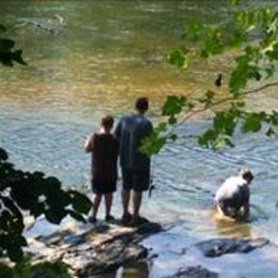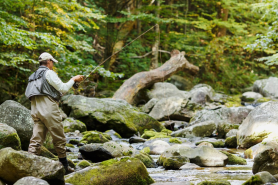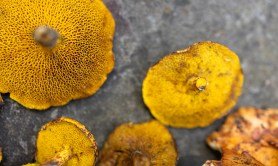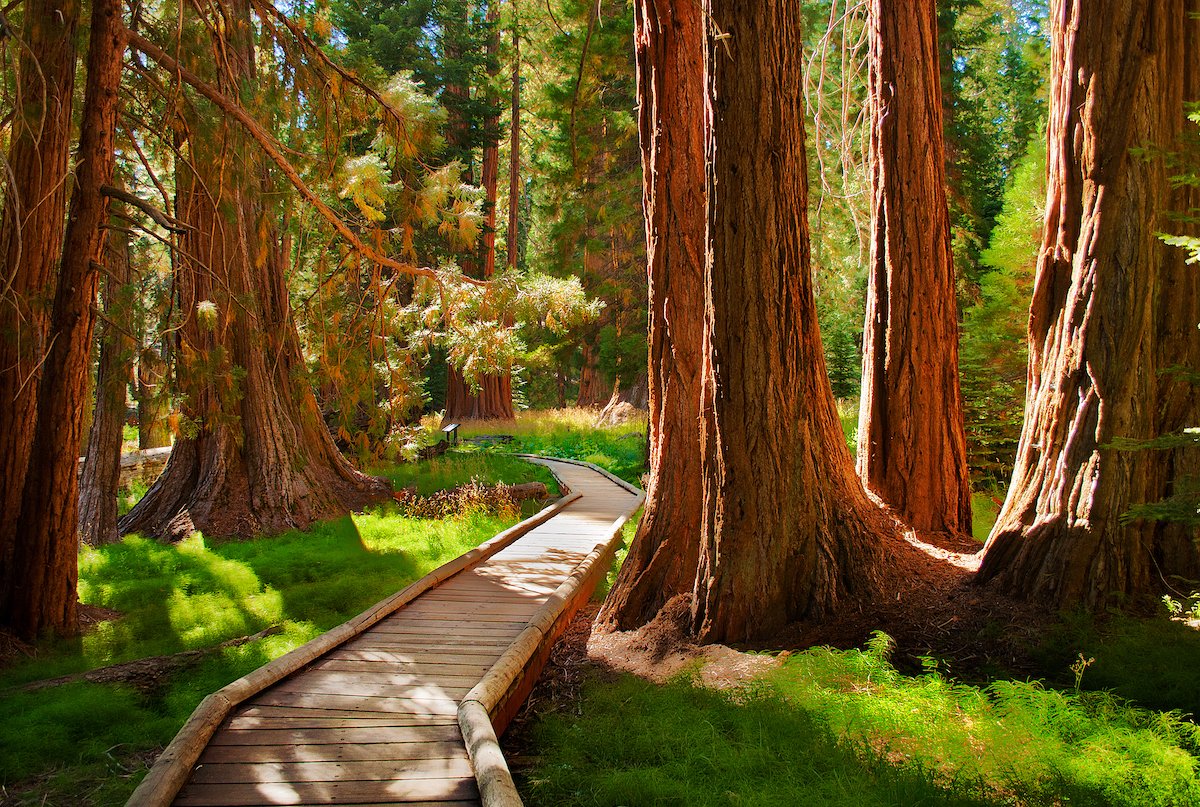

Sequoia and Kings Canyon National Parks are tucked in the Sierra Nevada mountain range of California. They’re adjacent to each other, and the U.S. National Park Service (NPS) has jointly administered them since World War II.
Formed in 1890, Sequoia is the U.S.’s second-oldest national park after Yellowstone. It welcomes over 1.1 million visitors each year to its beautiful landscape characterized by the sequoia trees that inspired the park’s name. King’s Canyon, named for the glacially formed canyon within its borders, was formed in 1940 and attracts well over a half-million visitors each year.
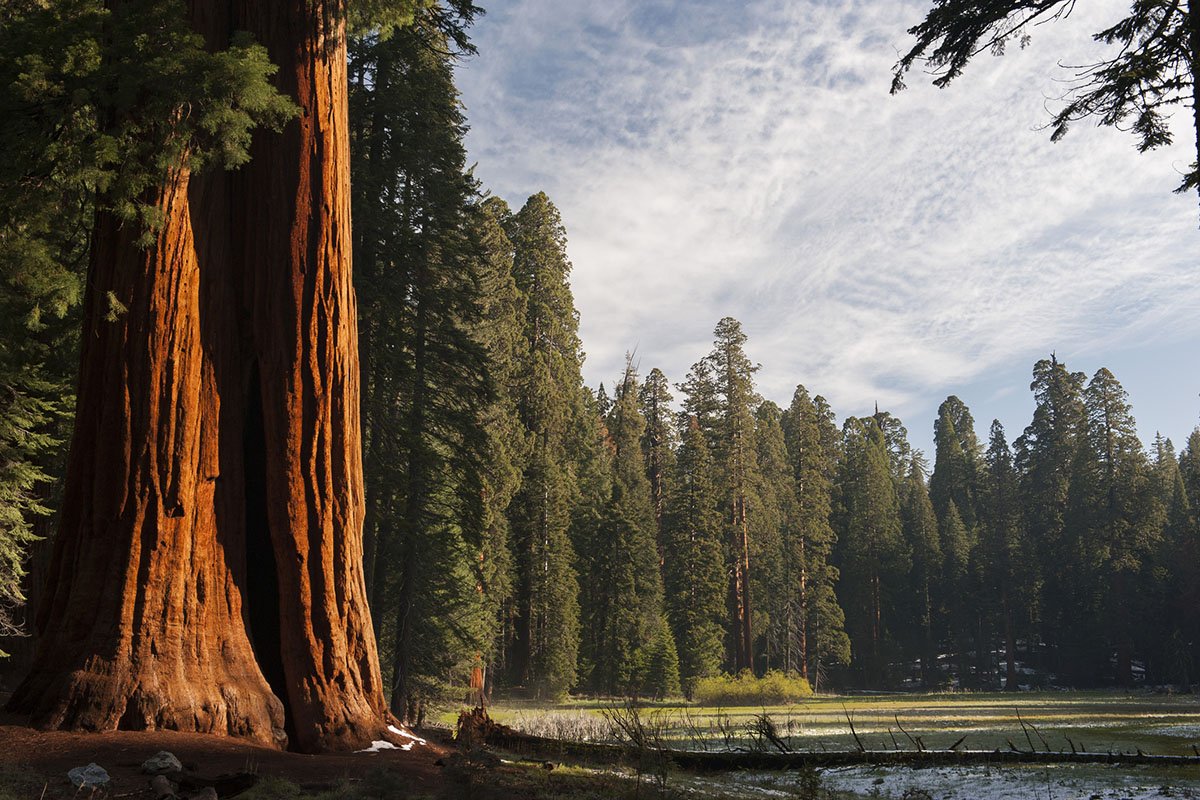
Here are five things you may not have known about Sequoia and Kings Canyon National Parks.
5. Sequoia Is Home to the Largest Living Thing on Earth (by Volume)
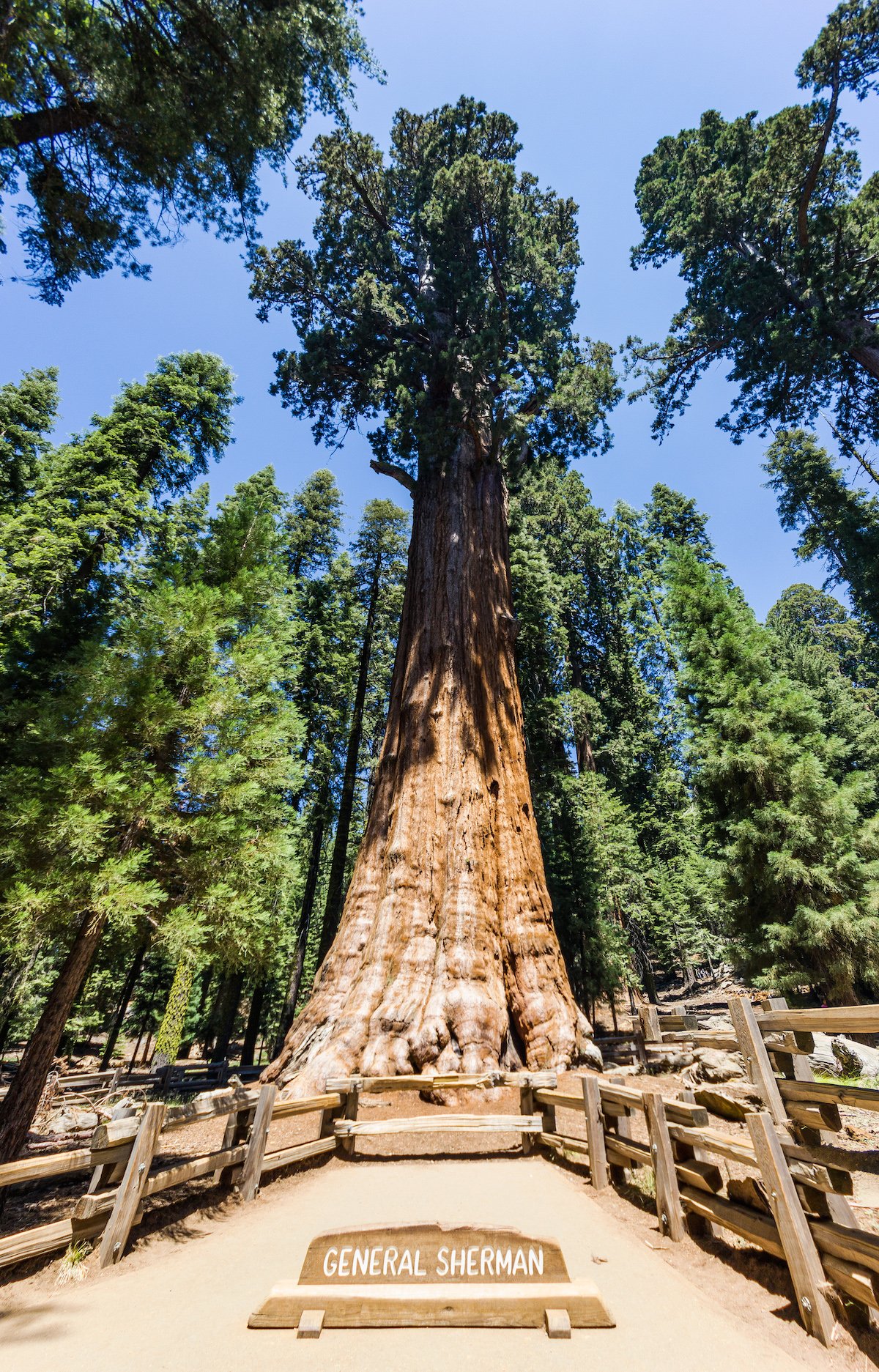
According to the NPS, Sequoia National Park was the U.S.’s first national park formed to protect living organisms, the giant sequoias, which could have been wiped out by logging activities had they not been proactively protected. Giant sequoia trees are, by volume, the largest tree species on the planet. The biggest of the giants—the General Sherman Tree—resides in Sequoia National Park, where it’s been growing for approximately 2,200 years.
The General Sherman Tree dominates at 275 feet (83 meters) tall and more than 36 feet (11 meters) in diameter at its widest. Though there are taller trees and wider trees, NPS says the General Sherman Tree is the largest known tree on Earth when measured by volume.
You can view this incredible tree by taking the Congress Trail, an easy 3-mile loop that meanders through the Giant Forest and connects with other trails that will take you even further into the realm of the giants.
4. The Nation’s Christmas Tree Is in Kings Canyon National Park
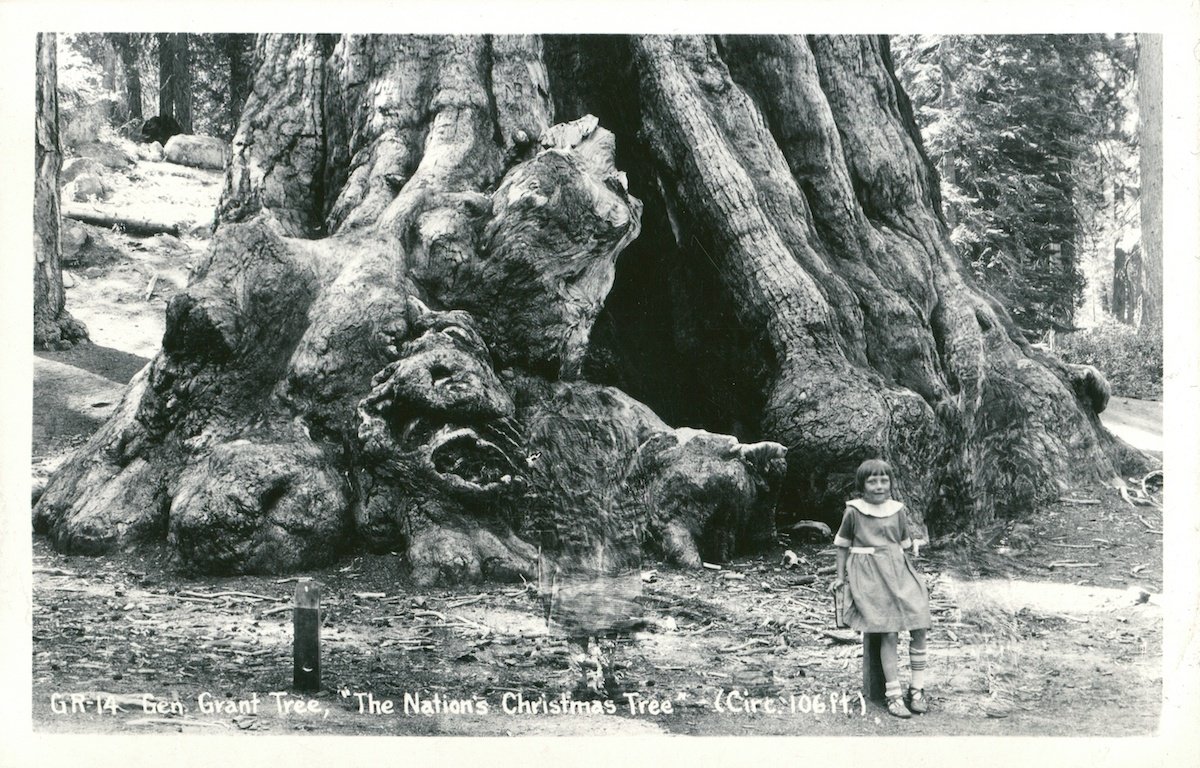
The second-largest tree in the world by volume, the General Grant Tree, grows in Kings Canyon National Park. As the story goes, R.J. Senior, who was president of the Chamber of Commerce, was visiting the tree and overheard a young girl say that it would make the perfect Christmas tree. The idea struck a chord, and Senior helped facilitate an annual ceremony that would take place by the General Grant Tree on Christmas Day, beginning in 1925. President Calvin Coolidge officially named it the Nation’s Christmas Tree in 1926.
Nearly 100 years later, there is still an annual “Trek to the Tree” in Kings Canyon, although it’s no longer on Christmas Day. Today, the trek takes place on the second Sunday of each December.
To visit the General Grant Tree any time of year, take the 1/3-mile paved loop trail to see the tree and others like it, including one—the Fallen Monarch—that fell down. Visit Fallen Monarch to walk through a giant sequoia and explore it from the inside.
3. There Are Hundreds of Caves, Including a Solar-Powered One
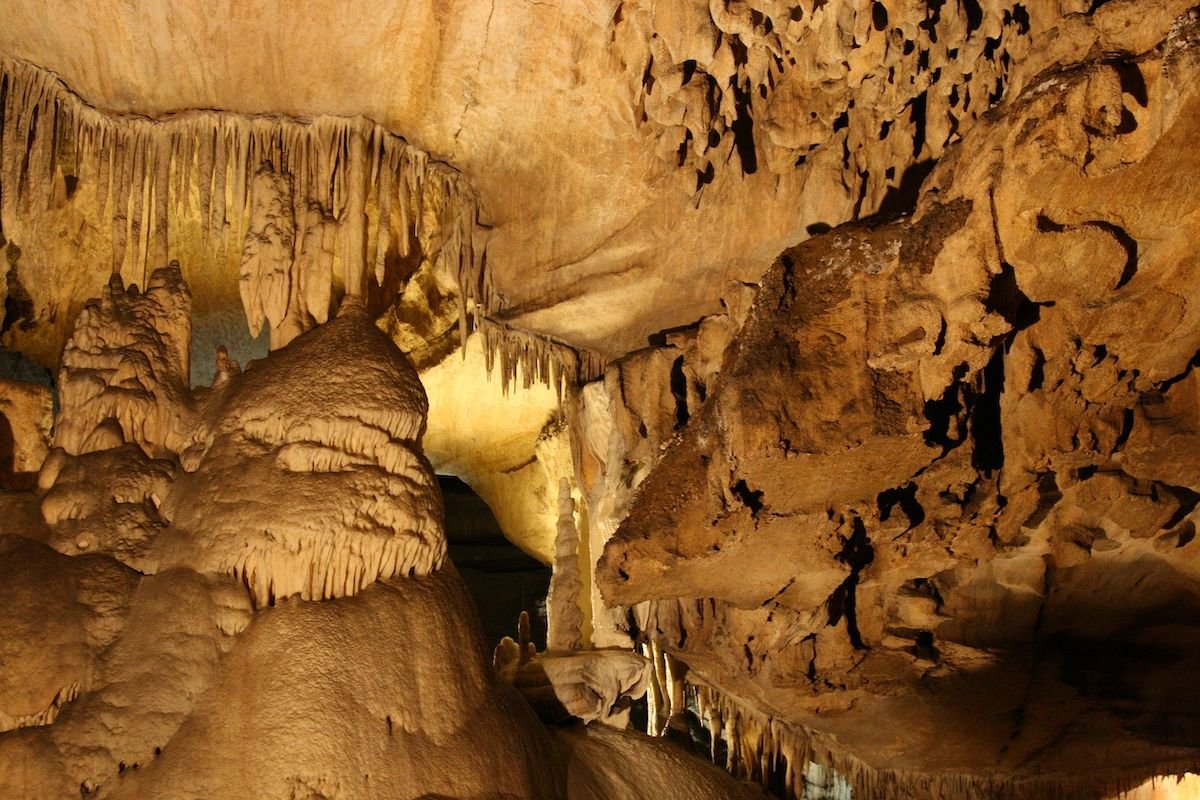
Most people come to Sequoia and Kings Canyon for the trees, but did you know about all the caves? There are at least 275 of them, and that number keeps growing as more are discovered. The parks protect the longest cave in California, as well as half of the caves in the state that measure more than a mile long.
One cave, Crystal Cave, is open for visitors, and many people go to take a tour and experience the unique underground environment. In the past, a loud, fuel-hungry generator facilitated these tours of Crystal Cave. However, today, the cave is powered by solar panels.
Note: Crystal Cave is closed for the rest of 2023, but public access is expected to be restored sometime in 2024.
2. Scientists Discovered a Millipede with Four Penises Here
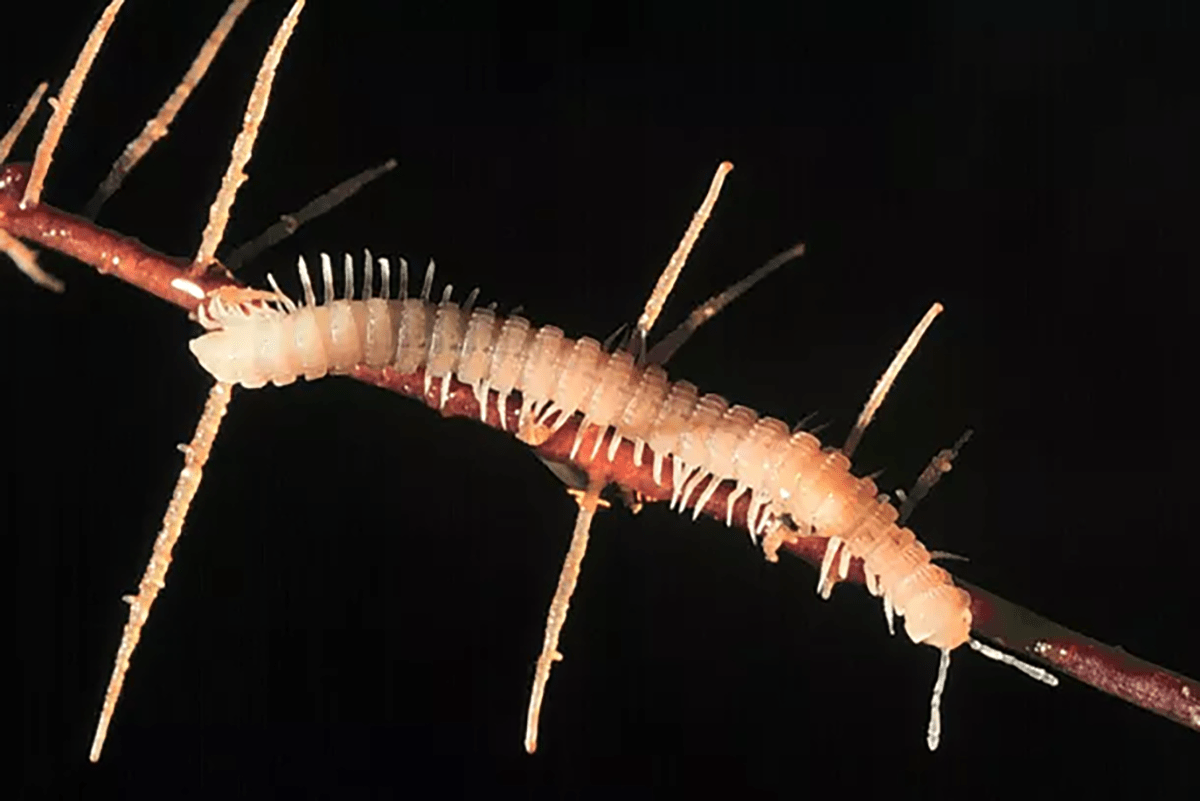
Scientists have discovered numerous new species within the Sequoia/Kings Canyon cave network, including the Crystal Cave millipede. This tiny invertebrate has lots of appendages, including over 400 legs and four legs modified to function as penises. This millipede also has hundreds of poison glands and silk-secreting hairs on its body.
This multi-membered millipede isn’t the only endemic vertebrate discovered in the depths of these parks’ underground caves. In Sequoia’s Clough Cave, which is not accessible to the public, scientists have discovered three invertebrate species that aren’t found anywhere else in the world, proving that there is still much to discover about this unique slice of the outdoors.
1. A Piece of Kings Canyon Is on Display in New York City
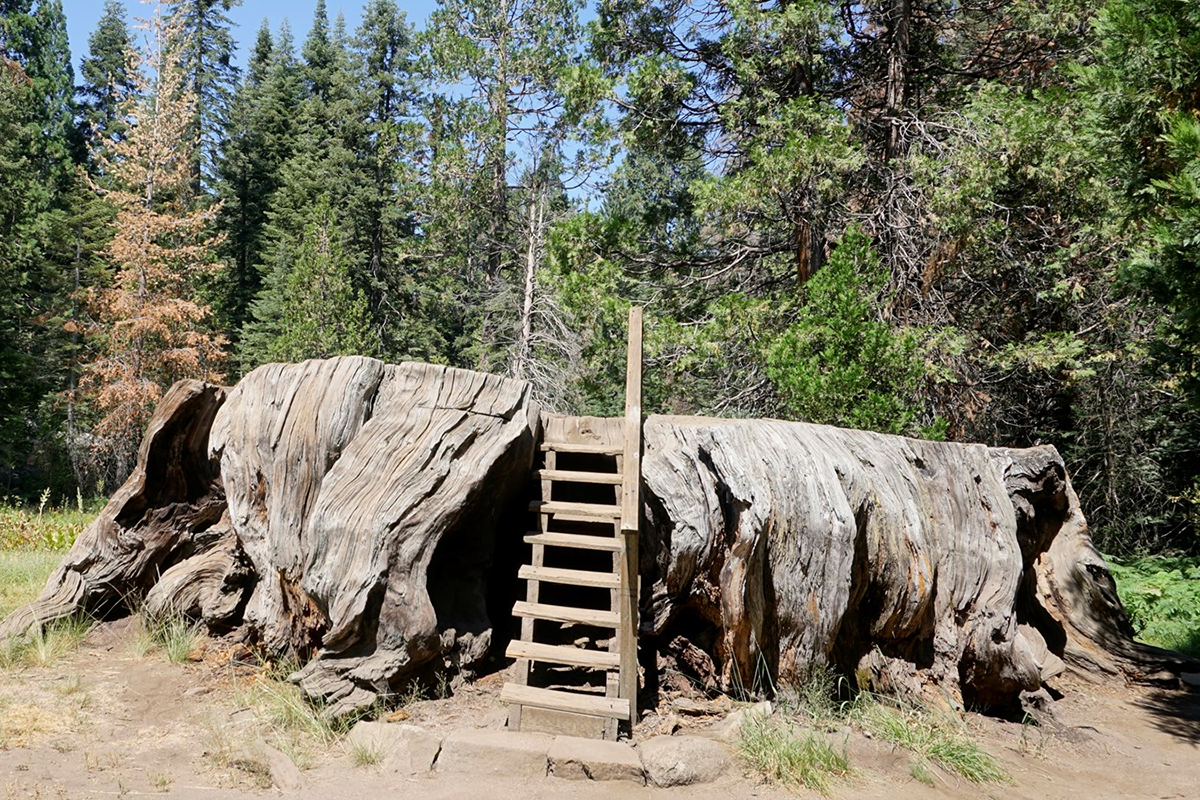
While in Kings Canyon National Park, you can visit Big Stump Grove and climb up the huge stump of the Mark Twain Tree, which was felled in 1891. This giant sequoia tree, which measured 16 feet in diameter, was cut down because people on the east coast of the U.S. and in London didn’t believe the claims of those who had traveled west and seen California’s giant sequoias with their own eyes.
After it was cut down, slices of the tree were transported back to New York and London as proof of these trees’ existence. Over a century later, sections of the Mark Twain Tree are still on display in New York City’s American Museum of Natural History.
You can visit the Mark Twain stump by taking a gentle 1.6-mile Big Stump loop trail that leaves from the Big Stump Picnic Area.
Read more facts about the National Parks:
- Great Smoky Mountain National Park
- Rocky Mountain National Park
- Isle Royale National Park
- Big Bend National Park
- Zion National Park
- Voyageurs National Park
- Glacier National Park
- Joshua Tree National Park
- Grand Canyon National Park
- Dry Tortugas National Park
- Yosemite National Park
- Arches National Park
- Olympic National Park
- Cuyahoga National Park



